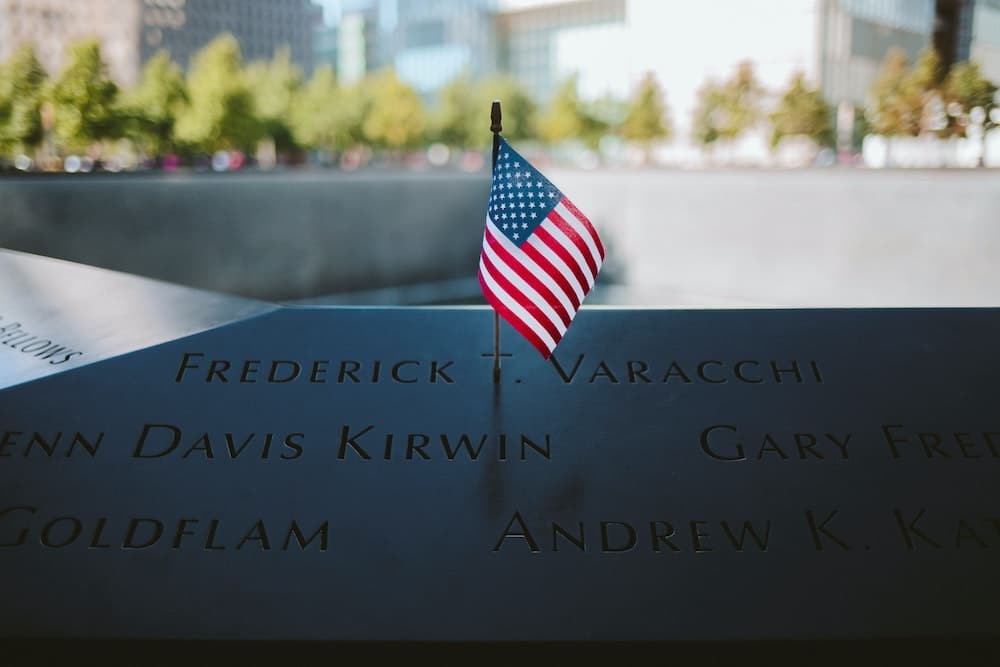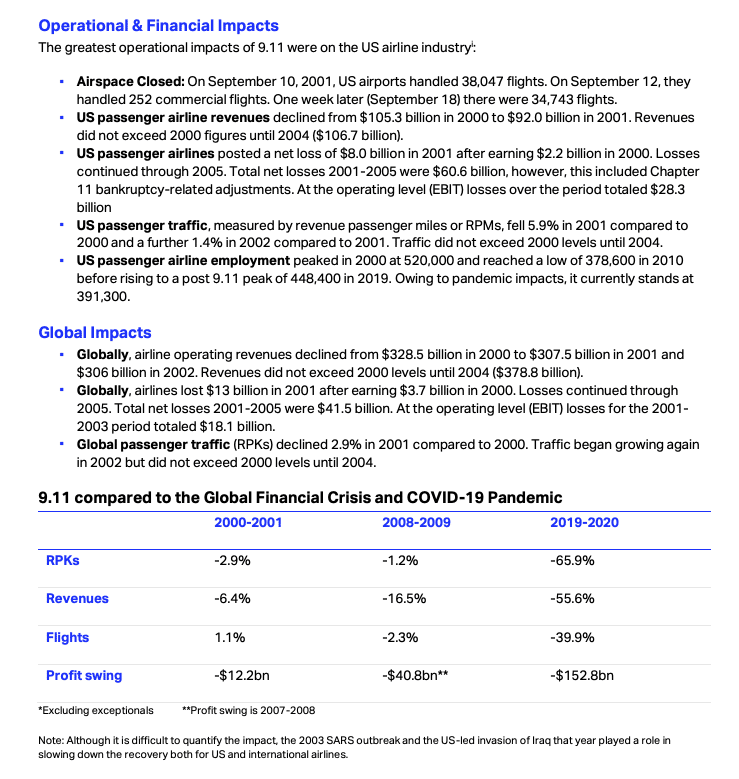
As the world prepares to commemorate the 20th anniversary of the 9.11 attacks, the International Air Transport Association (IATA) has sought to gauge the impact of the devastating events on the aviation industry.
In a comprehensive fact sheet signed by its director general, Willie Walsh, IATA’s assessment is that while 9.11 and the global financial crisis of 2008/9 had a long-lasting and major impact on the sector, the damage done pales in comparison to that of the Covid-19 pandemic.
Crucially Important to Commemorate 9.11

Saturday marks the 20th anniversary of the 9.11 tragedies, and Walsh says that it is “crucially important” to commemorate the events of September 11, 2001.
“We must continue to give the families and loved ones of the victims, and the victims themselves, the recognition and acknowledgement they deserve, while drawing inspiration from the heroes that day, the first responders who made the ultimate sacrifice and the passengers and crew of United Airlines flight 93 who disrupted the final attack with little hope for their own survival,” said Walsh.
The document outlines the tangible impact of 9.11 on the aviation sector two decades later. They include a vastly expanded security and intelligence apparatus that overlays air travel.
“This is most visible at airport security checkpoints,” IATA says, “although arguably the most intrusive post-9.11 changes—removing shoes at checkpoints, taking laptops and liquids out of carry-on bags and strict limits on liquids and gels in carry-on bags—are the result of subsequent, compounding terrorist plots against civil aviation.”
A Drop in the Bucket Compared to Covid-19
Walsh also acknowledges the havoc wrought by the global financial crisis of 2008/9 on the sector, but says “the damage done by both these crises is but a drop in the bucket compared to the impact of COVID19,” according to Walsh.
He notes how 18 months after government-enacted border closures and travel restrictions brought the industry to a near standstill international air traffic remains at a quarter of pre-crisis levels.

Lessons to Be Learnt
Walsh and IATA believe that an important lesson to be learnt from the previous crises is to “move beyond the one-size-fits-all, rules-based model that still, with some notable exceptions, such as TSA Pre-check, governs passenger security screening.”
IATA makes the case that efficiency is improved by “applying security measures based on the low risk presented by the majority of travellers.”
Walsh also calls for “firm deadlines” to be established for the expiration of the “extraordinary” measures imposed as a result of the pandemic and that should they need to be extended, that it be done so only as a result of the formal action of regulators.
Covid-19 Challenges
IATA is calling for the exemption of vaccinated travellers from testing and quarantine requirements and for the opening of borders based exclusively on risk measurements.
“If the risk of transmission is higher in Country A than in Country B, there is really no reason for Country A to bar vaccinated travellers from Country B from visiting,” said Walsh.
“And we must make sure that the COVID-19 measures are in place no longer than they are necessary.
“The story of the next 20 years ought to be about governments’ and industry’s ability to share and respond to new risks that are inherently integrated by nature or design,” he continued.
“Sadly, that lesson has not been learned in terms of governments’ response to COVID-19 and the way health measures are being imposed upon civil aviation without considered consultation.”




